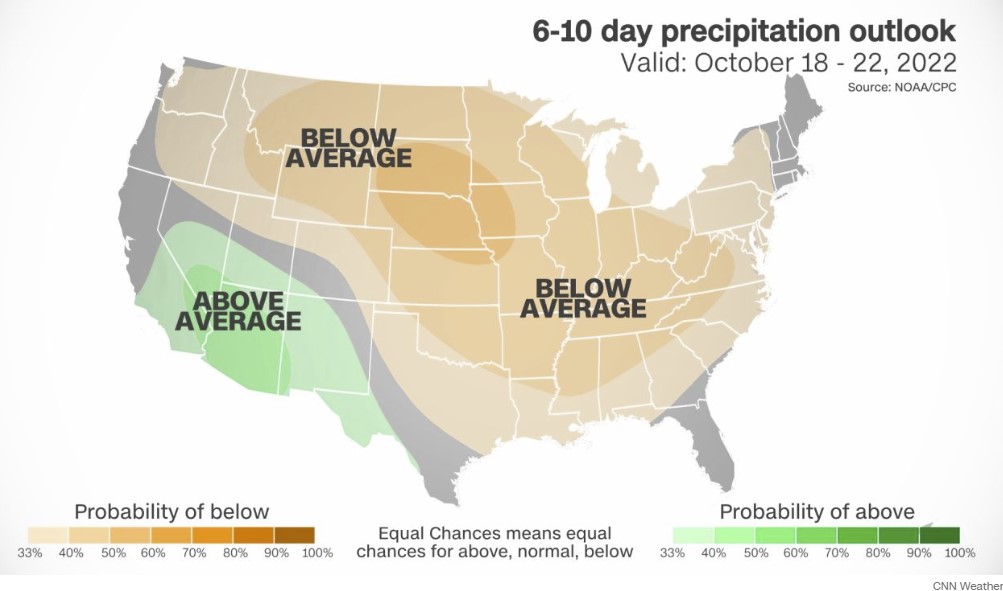As the Mississippi River plunges, the Army Corps is building a 1,500-foot-wide levee to keep salt water out of drinking water…

The US Army Corps of Engineers has launched construction on a 1,500-foot-wide underwater levee in the Mississippi River to prevent saltwater from pushing up the river amid record-low river levels and flow rates.
While drought in the US becomes more frequent and intense, sea level is rising along the coasts (or better said cities are sinking). These two events are literally clashing against one another in Louisiana at the mouth of the Mississippi River, where low flow is allowing saltwater from the Gulf of Mexico to push up the river, threatening drinking water supply.
The corps announced last week it would dredge sediment from the bottom of the river and pile it up near Myrtle Grove, Louisiana, to create what’s known as a sill, which will act as a dam for the denser saltwater in the lower levels of the river.
Ricky Boyett, Army Corps chief of public affairs for the New Orleans District, said the “toe” of the saltwater wedge is already approaching the location of the planned sill. The sill will be roughly 40 to 50 feet high underwater in a location where the water is around 90 feet deep.
Prepare now! Protect your home and cars againts EMP, solar flare and lightnings…
It will take another week until the sill can be built high enough to block the saltwater intrusion, he said, and it “is designed to be temporary.”
Boyett explained that the river’s low flow is the main problem right now.
“When it falls below 300,000 cubic feet per second, it doesn’t have enough force to keep the saltwater at bay,” Boyett said. The flow rate just north of the planned sill has been running around or below 200,000 cubic feet per second for more than a week, according to data from the US Geological Survey.
The Army Corps has used this strategy before. Salt water in the Gulf of Mexico, which is much denser than the freshwater flowing in the Mississippi, usually pushes up the river every 10 years, Boyett said. The last time a sill was built at the mouth of the river was in 2012, then 1999 and 1988 before that.
Boyett said the problem typically resolves itself once there’s enough rainfall upstream to ease the drought. He noted that what’s unfolding right now is similar to the low flow seen in 2012.
“The difference is that shortly after we built the sill then, Hurricane Isaac came in and dropped 20 inches of rain in different places, and so it kind of changed the flow rather quickly on us,” Boyett said. “In this case, we’re looking at an area where it’s really not enough rain in the current forecast to change it.”
Prepare now! You will never go without electricity with this portable power station!
A worsening drought in the central US has had a significant impact on the Mississippi River in recent weeks. Dozens of gauges in the river basin are at or below their low-water threshold. The river gauge at Memphis dropped to a new low record on Monday – minus-10.75 feet – surpassing the previous low record set in 1988.
The forecast from the Climate Prediction Center is dry, with below-average rainfall in the outlook through at at least the rest of the week.

As the water level in the Mississippi River drops, saltwater intrusion is already impacting a water treatment plant in Boothville in Louisiana’s Plaquemines Parish, and is projected to reach another one in Pointe a la Hache. Both of those locations are downriver from the planned sill.
Boyett explained that the sill is going to be built north of Boothville and Pointe a la Hache because the Army Corps focused on preventing saltwater from reaching Belle Chasse and cities further north, including New Orleans, where saltwater intrusion does not normally occur.
“When you’re looking at the areas below the Belle Chase, the smaller water intakes that Plaquemines is using, the parish kind of has the responsibility for mitigating for that saltwater because it is a natural phenomenon,” Boyett said.
Prepare now! Stock up on prep food while supporting alternative medias with Mike Adams’ Health Ranger Store…
For residents relying on drinking water from the Boothville facility, high levels of saltwater-related substances such as sodium and chloride have been detected, and a drinking water advisory is in effect.
Plaquemines Parish officials explained that they have secured a reverse-osmosis machine to treat the water and remove salt and other contaminants. Maybe you should get one too…
While the corps expects the sill to successfully prevent saltwater from reaching New Orleans, William Sweet, oceanographer and sea level rise expert with the National Oceanic and Atmospheric Administration, said it’s going to be an increasingly challenging strategy moving forward.
The Mississippi River Delta is facing climate and environmental pressures on multiple fronts, including sea level rise, land subsidence, deepening of the channel to allow more vessels and frequent flooding. Without a permanent fix, temporarily halting saltwater intrusion by creating sills will only cost more in the future, according to Sweet.
The Army Corps declined to disclose the cost of the current project.
“We now have levees on land to protect against flooding, and we have levees underwater to protect drinking water – this is a heavily fortified area with a lot of engineering,” said Sweet.
Prepare now! Stock up on Iodine tablets for the next nuclear disaster…
“While we understand it needs to be done, is it sustainable? I suspect that as long as (there is) the will and desire to continue to provide flood safety and drinking water availability, we will move forward as a country to provide this, but it’s going to be increasingly challenging due to the pressures of climate change and sea level rise.”
For now, Boyett said the corps is banking on precipitation to eventually replenish the Mississippi River.
“It really is gonna depend on rain in the Mississippi Valley. We need the water to come our way from up north,” he said. “And right now we’re not seeing anything in the forecast, but hopefully that changes soon.” [US Army, CNN]














Maybe the saltwater will kill some carp? Those fish suck. They should get some rain, which will help. Had to laugh a little at the global warming jargon, but they are paid to peddle the lies with their mockingbird media BS propaganda campaign. May as well chuck your tv in the garbage. Cancel your cable too. Put an end to being programmed to having your mind controlled and opinions shaped by satanic government perverts.
Government — governe mentis, to control the mind.
Seems lying is all they know. Would choke if they let some truth out. At any rate, if the Earthquake guy is right, they should start moving folks out. Probably too late for the truth though. Have a friend in southern Indiana. Said they’ve been getting normal rain all summer. And he’s a farm boy. Lives just north of the Ohio River. But they have to have a story for what the Mississippi is doing. God forbid they’d tell the truth. Steal our money AND lie to us. What good are they?
They should be evacuating the whole area while there is still time.
I could write several pages as to why this in the long run is futile and a total waste of manpower resources.Lets not mention the enablement of those who wish to avoid reality and accountability for their actions.
I could also write a book about the cities on the river and the idiotic city planning which in some cased created problems that didn’t need to be.Not to mention all of them contributed to further bad planning.